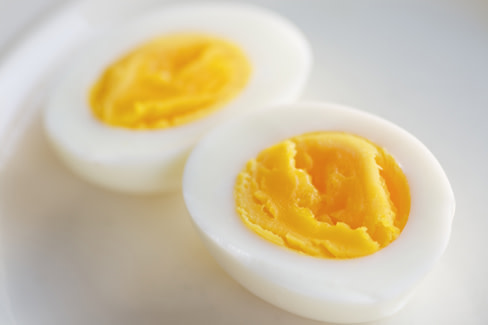A Food You Should Eat (And One You Should Avoid)
[caption id="attachment_1106" align="alignnone" width="488"]
When there are so many things that factor into “eating healthy”—from weight loss to optimal nutrients to hormones and toxins to portion size to the psychology of decision-making—we should all acknowledge that there’s no “magic bullet” when it comes to nutrition. That being said, it’s good to take the clear-cut info when you can get it.
Between a recent interview with Eve Prang Plews for the health column and a survey of local nutritionists for our October Sarasota Health publication (plus my usual obsession with food, and ever-dwindling bank account) a few tidbits of dietary info have made a big impression on me. They certainly don’t add up to any grand diet plan—in fact, one doesn’t have a lot to do with the other—but it’s little things like these that can add up over the years.
Eggs yolks are good. When two nutrition experts, with no specific prompting, suddenly and separately proselytize the merits of a certain food, it makes an impression. Such was the case recently when, on separate occasions, both Plews and local nutrition author Mira Calton demanded egg yolks be put back on our collective menu. To wit: “If it were up to me, we would have been eating the yolk and throwing away the white from the beginning,” says Plews, who cites the need for phosphatidylcholine, a lipid found primarily in egg yolks and organ meats. (The latter not being a major part of most Americans’ diets.)
Said Calton, after being asked about misunderstood foods: “Egg yolks are among the most micronutrient-dense foods on the planet, while egg whites are merely a moderately good source of protein.”
And, might I add, a perfectly scrambled egg—not runny, but nowhere near overdone—is a lovely way to start the day.
Dark soda is bad. All sodas are “liquid candy bars,” says Plews, “but by golly if you’re gonna drink pop all day, don’t do the dark sodas.” They have additional toxins; for instance, the body has to leech calcium from your bones in order to buffer the large amounts of phosphoric acid found in dark sodas. And yes, even the diet sodas are bad.
(And a report that broke last week describes a whole mess surrounding the carcinogens used to give Coke and Pepsi their dark color.)
So I’ll be sticking with coffee (which, you should know, is loaded with antioxidants).
Processed foods are riddled with nutritional booby traps. This is kind of duh, and yet, I think it’s easy to forget about it when we’re shopping. Maybe that’s because there are so many different ways to say it: “Eat only what your grandmother would recognize as food,” or “Shop along the perimeter of the supermarket,” or “If it comes in a box, it’s probably bad for you.” The fact is, so many things can be done to processed foods, especially involving nutritional misdirection—like when “low-fat” foods have added sodium and sugar, or when “diet” foods have chemical sweeteners. Being able to read labels is important, but the less there is to label, the better.
(Of course, you still have to be wary of GMOs, pesticides, hormones and the like, but you’ll be getting the best ratio of nutrients-to-additives.)
And trust me, nothing makes you feel happy, healthy and (let’s face it) smug like when your section of the supermarket check-out belt is filled with veggies and steak, while the person behind you is stocking up on diet soda, Lean Cuisine and low-fat ice cream.



